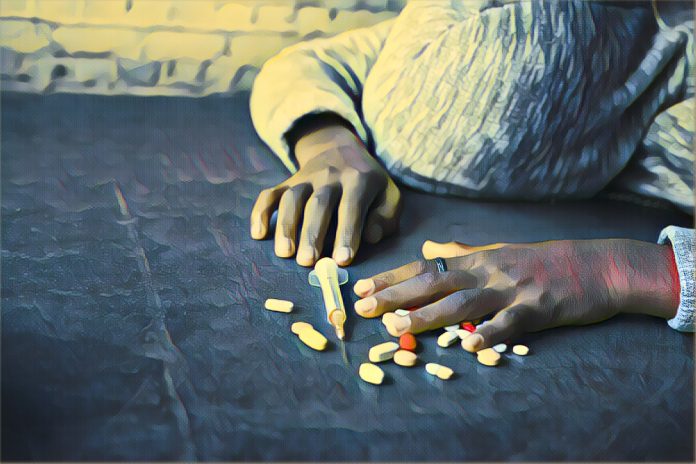Nigeria is facing a significant challenge of addiction to synthetic opioids, a market estimated to be worth more than $1 billion annually. These drugs, mainly tramadol and codeine, are fuelling widespread health and social problems, violence, and insurgency.
According to a report by the United Nations Office on Drugs and Crime (UNODC) and the National Institute for Security Studies (NISS), Nigeria is the single highest-value drug market for synthetic opioids in West Africa. The report reveals that most of the tramadol seized in Nigeria between 2011 and 2019 was manufactured in South and Southeast Asia, and smuggled through ports in Benin and Togo. The report also cites Nigeria as a hub in the transnational cocaine and heroin trade, with cocaine coming from Latin America via Ethiopia and Benin.
The misuse of synthetic opioids is linked to various factors, such as poverty, trauma, unemployment, and lack of access to health care. Many people use these drugs to cope with stress, pain, or boredom or to enhance their performance in work or sex. Some also use them for spiritual or religious purposes. However, the consequences of opioid abuse are severe, including liver damage, stomach ulceration, respiratory depression, coma, and death.
The opioid crisis also has implications for security and stability in Nigeria. The report suggests that some of the insurgents and vigilantes fighting in the northeast of the country are addicted to tramadol, which gives them a sense of euphoria and courage. The drug also fuels violence and crime, as users may resort to theft, robbery, or kidnapping to fund their habit. Moreover, the trafficking of opioids involves organized crime syndicates that have connections with government officials and security agencies.
The report calls for urgent action to address the opioid crisis in Nigeria, such as creating ethical standards, ensuring transparency and accountability, fostering public awareness and education, and strengthening law enforcement and treatment services. It also urges the government and the industry to work together to ensure the safety and benefits of opioids for medical use.
The UNODC Executive Director Ghada Waly said: “The surge in the global opioid supply should put all of us on high alert. The potential for the opioid market to expand in Africa and Asia is a dangerous reality. I urge governments and others to closely examine the report’s findings to determine how this transnational threat can be met with transnational responses based on awareness raising, prevention, and international and regional cooperation.”
The report also highlights some positive initiatives that have been taken to combat the opioid crisis in Nigeria, such as the ban on codeine cough syrup in 2018, the establishment of drug treatment centers by the NDLEA, and the involvement of civil society groups and religious leaders in advocacy and prevention efforts.
Source: Business Day



